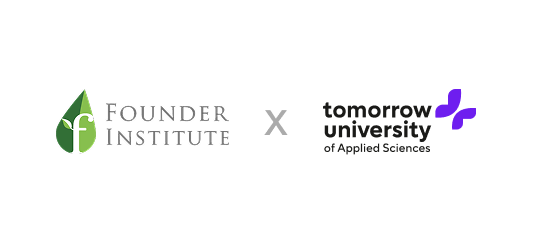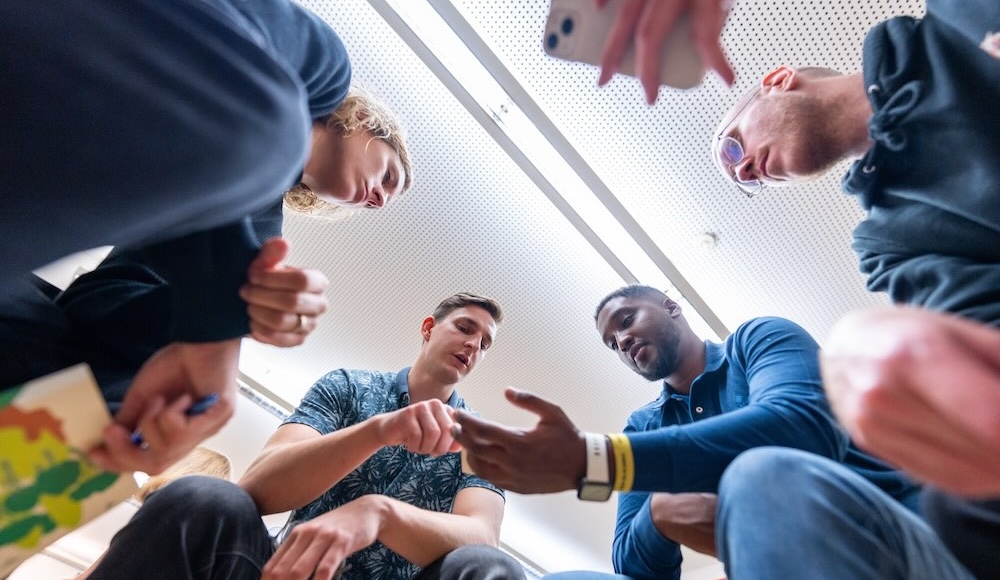Why This Learner Chose a B.Sc. at Tomorrow University
Choosing where to study is a big decision—especially when purpose matters. In this 'Humans of ToU' feature, meet a student who shares what drew them to the B.Sc. Top Degrees to Start a Career in Sustainability in Artificial Intelligence & Sustainable Technologies. Learn what makes their journey unique—and what it could mean for yours.

🎓 B.Sc. in Artificial Intelligence & Sustainable Technologies
🎯 Federal Capital Territory, Nigeria
🌱 SDGs 3, 4, 9, 12
💼 Product Designer | AI Research Engineer | Founder of Marmar
From Interface to Intelligence: Where Design Meets AI
Ahmad Rufai Yusuf is a rare blend of deep tech and user empathy. As a Product Designer and AI Research Engineer, he bridges the gap between advanced machine learning and real-world human needs—particularly in healthcare. With over five years of experience in UX and software engineering, he’s built tools that reduce friction, boost engagement, and even help patients manage medication with life-changing accuracy.
Why Tomorrow University? Designing for Impact, Ethically
Ahmad joined Tomorrow University to pursue a mission that was both technical and human. He was drawn to the B.Sc. in Artificial Intelligence & Sustainable Technologies for its interdisciplinary focus—blending computer science, sustainability, and ethical entrepreneurship.
"My academic journey at Tomorrow University equipped me with not just technical AI skills, but also the entrepreneurial mindset to transform ideas into viable solutions. The combination of rigorous academic instruction and practical application prepared me perfectly for building AI systems that address complex challenges." he says
He also found a space to explore deeper questions about ethics, IP rights, and the role of designers in shaping the future of human-AI interaction.
Marmar and the Future of Healthcare
While studying at ToU, Ahmad scaled his startup Marmar—an AI-powered medication management platform that achieves 98.5% accuracy compared to DrugBank. Developed through close collaboration with clinicians and engineers, Marmar now serves thousands of users and is expanding through strategic integrations across the healthcare sector. The platform won Best Solution at LEAP 2024—beating over 4,200 participants—as a solo project, further validating its potential. Ahmad’s thesis, Leveraging Artificial Intelligence to Mitigate Inappropriate Polypharmacy Risks: The MARMAR Approach, deepened the scientific foundation of the product. Marmar exemplifies Ahmad’s unique ability to use design as a language—translating complex, AI-driven systems into accessible and impactful healthcare solutions.
Exploring the Relationship Between AI and Design
Ahmad also co-authored an influential piece with ToU Professor Ana-Maria Olteteanu, diving into how AI is transforming the design process. They explored tools like Genius, Magician, and Uizard, discussed the types of creativity AI enables, and raised ethical questions around intellectual property and authorship.
“AI must support—not replace—the creativity and intuition of human designers.”
The article sparked broader dialogue about the future of co-creation between humans and machines and proposed innovative solutions like blockchain-based ownership systems for AI-generated designs.
Advice to Future Innovators: Think With, Not Just About AI
Ahmad’s advice to learners, creators, and researchers is simple:
"Build like someone’s life depends on it—because sometimes it does, Let your heart guide the ‘why’ and your mind the ‘how.’ AI can enhance both, if you know when to let it serve and steer.”
He encourages others to embrace design as a process of critical thinking, and to consider the impact of their tools on the people they’re meant to serve.
Want to accompany Ahmad on his journey? Follow him on LinkedIn
👉🏾 Ahmad at a Glance
- Background: B.Sc. student in AI & Sustainable Tech, with 5+ years in UX and engineering
- Key Experience: Founder of Marmar, creator of healthcare tools, AI/design ethics writer
- Why ToU: To ethically explore the intersection of AI, sustainability, and human-centered design
- Mission: To create innovative solutions (Technical & Non-Technical) that will improve the lives of people around the globe, and to equally support and elevate those around me.
- Advice: “AI can be a tool for empathy—if we stay curious, cautious, and creative.”
.svg)
.svg)
.avif)
.svg)



.webp)




